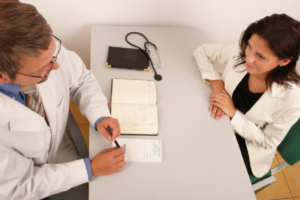GET THE FACTS ABOUT GONORRHEA

Gonorrhea is a sexually transmitted disease that men and women alike can get through multiple forms of sexual contact. As a result, it can spread quickly when individuals engage in unprotected sex with more than one partner. If a person with gonorrhea doesn’t know that she has it, she can unknowingly spread the disease even within a monogamous relationship. This is why protected sex and gynecological examinations are essential to avoiding and addressing this problem.
Transmission
Though vaginal sex is a common way for gonorrhea to spread from one person to another, it is far from the only method of transmission. Individuals who engage in anal sex can contract this disease as well. Those who refrain from intercourse, yetperform oral sex on a partner , might also get gonorrhea. As a result, this disease can develop not only in the rectum and genitals, but also the throat and mouth.
Symptoms
Many people with gonorrhea may not be aware that they have this disease, as a high number of STD sufferers are asymptomatic. Of those who do present symptoms, both women and men might experience unusual fluid secretion from the vagina or penis, respectively. Women might also notice spotting during times other than their normal menstrual cycles. Men can suffer from testicular discomfort. Uncomfortable urination is common in both genders as well.
Treatment
An annual gynecological examination can reveal the presence of gonorrhea in individuals who show no noticeable symptoms. If possible signs of this disease appear and you are sexually active, you should see a gynecologist as soon as possible. Antibiotics are available that can clear this disease from the body. Cessation of all sexual activities until all medications have been used as directed is also important for the prevention of gonorrhea transmission to other people.
Could you be at risk for gonorrhea? To find out , call Washington Surgi-Clinic at (202) 659-9403. Our capable and confidential gynecological services for residents of the greater Washington, D.C. area can help you stay on top of your reproductive health.
